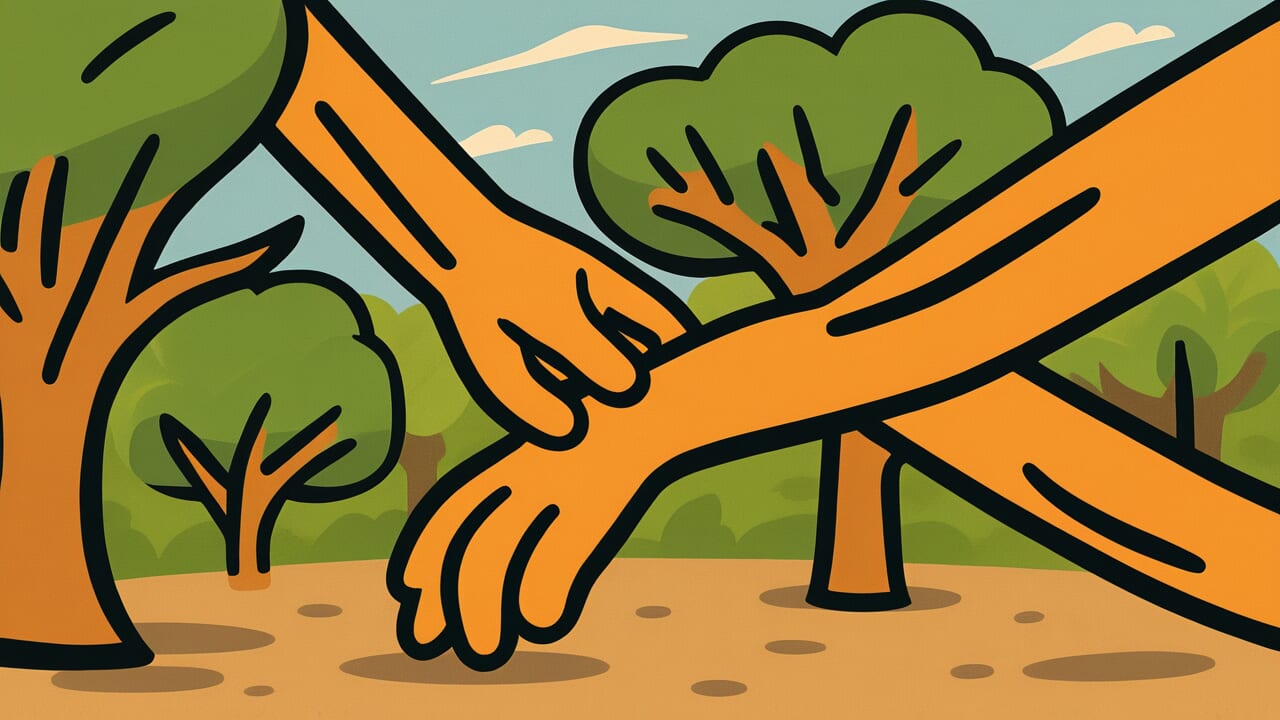How to Read “If a tree is too strong, it will break”
Kikyō nareba sunawachi oru
Meaning of “If a tree is too strong, it will break”
This proverb teaches that being too stubborn leads to failure or ruin.
Just as a tree that is too hard and strong cannot withstand powerful winds or heavy snow and breaks, people who cling too tightly to their ideas or methods cannot adapt to changing situations and end up failing.
This saying is used when someone stubbornly refuses to change their opinion and pushes forward without listening to advice from others.
It serves as a warning that such an attitude will ultimately hurt the person. People also use it to caution themselves.
Even in modern society, we see organizations and individuals who lack flexibility get left behind in rapidly changing times.
This proverb teaches us that true strength is not mere rigidity, but the flexibility to change form according to the situation.
Origin and Etymology
This proverb is thought to be influenced by ancient Chinese philosophy, particularly the ideas in Laozi’s “Tao Te Ching,” which values flexibility.
Laozi taught the concept that “softness overcomes hardness,” showing the paradoxical truth that soft things can defeat strong things.
The expression “If a tree is too strong, it will break” connects this philosophy with observations of nature.
In reality, when strong winds blow, the branches of hard, thick trees break. But flexible trees like willows bend with the wind and survive without breaking.
This natural principle became a lesson for how humans should live.
The use of the old expression “sunawachi” shows that this saying has been passed down in Japan since ancient times.
Similar expressions appear in educational texts from the Edo period. Even in bushido, the samurai code, people taught the importance of having flexibility, not just strength.
While stubbornness was considered a virtue, our ancestors also understood the importance of responding flexibly when necessary.
This proverb contains the deep insight that balancing these two values is what true strength means.
Usage Examples
- He stuck to his own methods and wouldn’t listen to others’ opinions, but as they say, if a tree is too strong, it will break—the project ended in failure
- They say if a tree is too strong, it will break, so I’ve recently realized that sometimes compromise is necessary
Universal Wisdom
This proverb has been passed down because humans are creatures who fundamentally misunderstand what “strength” means.
We tend to see strength as an unbending will, unwavering beliefs, and an uncompromising attitude. This certainly looks beautiful and worthy of respect.
However, our ancestors noticed something different through observing nature. They realized that true strength was something else entirely.
After a typhoon, what lies broken are the thick, hard branches, while flexible grasses and trees survive.
This fact has been confirmed repeatedly in human society. People who stubbornly insist on their own correctness become isolated, while those who respond flexibly survive.
Throughout history, countless rulers have fallen by clinging to rigid policies.
Humans have pride, and changing what we’ve decided feels like weakness. We mistakenly think that changing our opinion means admitting defeat.
But this proverb warns that such assumptions are dangerous. The ability to adapt to change is true strength, and flexibility is not weakness but wisdom.
Humanity has understood this paradoxical truth for thousands of years.
When AI Hears This
In materials engineering, “hardness” and “toughness” are treated as completely separate metrics.
Hardness means resistance to deformation, while toughness means resistance to fracture. Surprisingly, these two often have an inverse relationship.
Diamond has a Mohs hardness of 10, making it the hardest substance on Earth, but it shatters easily when hit with a hammer. This is brittle fracture.
Meanwhile, erasers and rubber are very soft, yet no matter how much you bend them, they won’t break. This is the characteristic of materials that don’t undergo ductile fracture.
Even with steel, if you increase the carbon content too much to raise hardness, it becomes sharp like a Japanese sword, but it breaks more easily under impact.
The proverb’s observation that “if too strong, it will break” perfectly captures the trade-off between material hardness and toughness.
Skyscrapers withstand earthquakes not through rigid structures, but through designs that absorb shaking with seismic dampers.
Aircraft bodies use aluminum alloys for weight reduction, but they prioritize resistance to fatigue fracture—that is, toughness—over hardness when adjusting alloy ratios.
While humans intuitively think “strong = hard = good,” engineering reveals the paradoxical truth that “appropriate flexibility prevents fracture.”
Ancient wisdom had struck at the heart of modern fracture mechanics.
Lessons for Today
What this proverb teaches you today is that having your own beliefs and clinging to them are two different things.
In our rapidly changing modern society, what was right yesterday may not work today.
In such times, you need the courage to adjust your thinking to new situations rather than clinging to past successes or your pride.
Whether at work or in relationships, the attitude that “I’m absolutely right” creates friction with others and ultimately leads to isolation.
Listening to others’ opinions and sometimes revising your own thinking is not weakness but a sign of maturity.
What matters is protecting your core values while remaining flexible about how to realize them.
Even if you don’t change your destination, there’s more than one path to get there.
Taking detours and stopping to reconsider are important processes for moving forward.
By having flexible strength, you can overcome any difficulty.



Comments